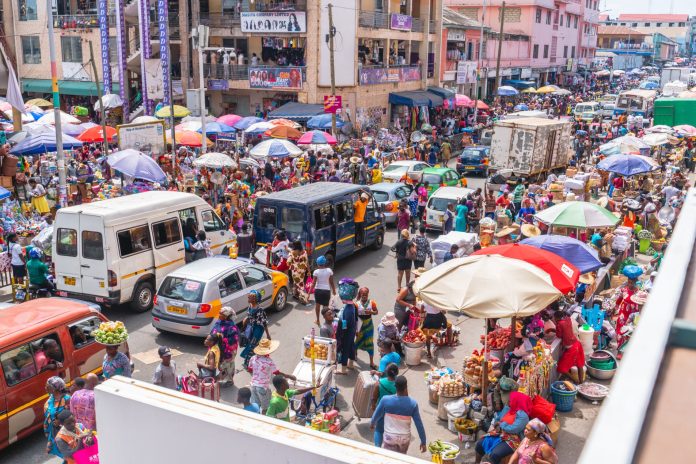|
Getting your Trinity Audio player ready...
|
Ghana’s inflation rate experienced a slight uptick in January to 23.5%, up 0.3 percentage points from December, marking a return to its upward trend after five consecutive months of easing.
The uptick could lead policymakers at the central bank to revise forecasts that inflation is on a downward trajectory. That expectation motivated their decision to decrease the benchmark rate in January for the first time since July 2021, to 29% from 30%, ending the steepest phase of monetary tightening, Bloomberg writes.
Government statistician Samuel Kobina Annim said on Wednesday (February 14) the increase in annual inflation was primarily attributed to a significant surge in non-food items, including housing, clothing, and transport.
Non-food inflation rose to 20.5% in January 2024, up from 18.7% in December 2023.
However, food inflation continued its downward trajectory, albeit marginally, dropping to 27.1% in January from 28.7% in December 2023.
In terms of month-on-month inflation, food inflation stood at 1.6%, while non-food inflation was estimated at 2.4%, writes Citi News.
Seven divisions reported inflation rates higher than the national average, notably alcoholic beverages, tobacco, and narcotics (38.5%); personal care, social protection, and miscellaneous goods and services (32.0%); and restaurants and accommodation services (29.2%).
The West African country’s economy is gradually recovering under a $3bn International Monetary Fund (IMF) bailout secured in May 2023 after going through its worst economic crisis in decades.
Source: Daily Mail GH





